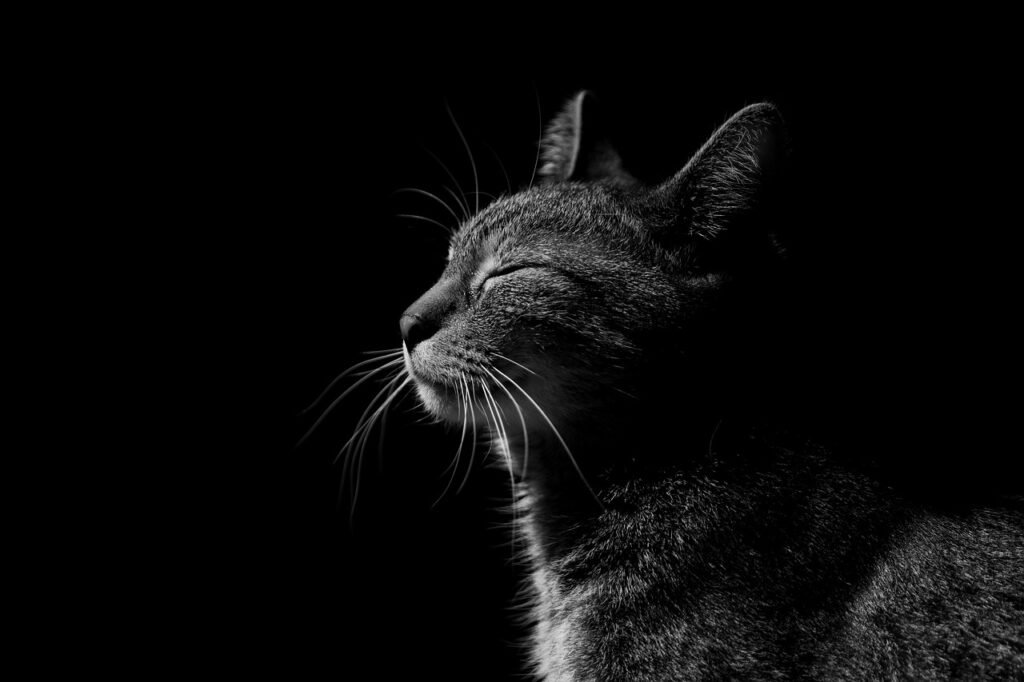Can Cats Eat Popcorn? – No, They can’t
When it comes to sharing your snack with your furry friend, you may wonder, “Can cats eat popcorn?” The answer here is plain and simple – no, they shouldn’t. While popcorn itself isn’t toxic to cats, it doesn’t offer any nutritional value for them either. It can also pose a choking hazard, especially if it’s not fully popped. Moreover, most popcorn is seasoned with salt, butter, or other toppings that are not healthy for cats. Therefore, it’s best to keep your popcorn to yourself and stick to cat-safe treats.
Can Kittens Eat Popcorn?
Kittens are even more sensitive than adult cats, so the answer here is also a strong no. Kittens have delicate digestive systems and feeding them popcorn could lead to digestive upset. Their small size also increases the risk of choking on popcorn kernels. For the health and safety of your kitten, it’s better to avoid giving them popcorn altogether.
Things to consider when feeding popcorn to kittens?
Since kittens should not have popcorn at all, the most important thing to consider is to ensure the snack is out of their reach. Focus on providing them with a balanced diet that is specifically formulated for their growth and developmental needs. Treats for kittens should be safe, healthy, and appropriate for their age.
Nutritional Benefits of Popcorn for Cats – Why Cats can have Popcorn
Actually, no benefits
While popcorn is a low-calorie snack for humans, it holds no significant nutritional benefits for cats. Cats require a diet high in animal protein and popcorn simply doesn’t meet these dietary requirements. It doesn’t provide the necessary taurine or other essential amino acids that cats need for optimal health.
Is there anything in popcorn for cats?
Not really. Popcorn is mostly air-popped corn kernels, which are a source of carbohydrates. Cats are obligate carnivores and their bodies are not designed to digest large amounts of carbs well. Popcorn can lead to unnecessary weight gain and may contribute to digestive issues for cats.
Potential Allergies: Can Cats Be Allergic to Popcorn?
While allergies to popcorn in cats are rare, they can still occur. If your cat has never had popcorn before and accidentally ingests some, watch for any adverse reactions.
Symptoms of Popcorn Allergies in Cats
- Gastrointestinal upset: Look for symptoms such as vomiting or diarrhea, which may indicate an allergy or intolerance to an ingredient in popcorn.
- Skin reactions: Monitor your cat for any signs of itching, redness, or hives, especially around the face and ears.
- Respiratory issues: If you notice your cat is coughing, wheezing, or showing signs of difficulty breathing, these could be symptoms of a severe allergic reaction.
What to Do If Your Cat Shows Symptoms?
- Veterinary Visit: If your cat exhibits any symptoms of an allergy, contact your veterinarian promptly for advice and possible treatment.
- Remove popcorn: Ensure all popcorn and similar snacks are out of your cat’s reach to prevent further issues.
- Monitor closely: Keep a close eye on your cat to monitor any additional symptoms or changes in behavior.
Recommended Amount: How Much Popcorn Can a Cat Consume?
As popcorn is not recommended for cats, there is no safe quantity that you should give to your cat. The focus should be on providing a nutritious diet suitable for felines, which does not include popcorn.
Things to Consider When Feeding Popcorn to Cats
Simply put, popcorn isn’t a suitable treat for cats. Besides the lack of nutritional value, the risk of choking and the possibility of digestive issues make it a snack to avoid for your pet. Instead, choose cat-specific treats that can benefit their health.
How to Feed Popcorn to Cats: A Quick Guide
While we’ve established that cats should not eat popcorn, it’s important to provide them with appropriate treats. If you’re looking for ways to pamper your cat, focus on cat-friendly snacks and meals that cater to their nutritional needs.
Safe Snack 1: Catnip Bites
Combine catnip and soft wet cat food to create small, bite-sized treats. You can even freeze them for a cool treat on a hot day!
Safe Snack 2: Tuna Flakes
Take some canned tuna in water, drain it, and create small flakes that your cat can enjoy. Remember to feed it to them in moderation.
Safe Snack 3: Cooked Chicken Chunks
Cook some unseasoned chicken until well done, cut it into small, bite-size chunks, and serve it to your cat as a healthy, protein-rich treat.
Conclusion
While sharing your snacks with your kitty might be tempting, popcorn is not a treat for them. It’s best to stick to foods and treats specifically designed for c



